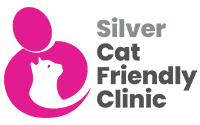 Vaccinations
Vaccinations
- Your new puppy should be vaccinated against five main diseases: Distemper, Hepatitis, Parvovirus, Parainfluenza and Leptospirosis (we give all of these together in one injection to make it more comfortable for your pup).
- They need one vaccination at 6-8 weeks old and then a second vaccination between 10-12 weeks old.
- These must be at least two weeks apart and your puppy must be at least 10 weeks old to have the second vaccination. Puppies can then go for normal walks 5-7 days after the second vaccination is given.
- We also now recommend that your puppy is vaccinated against contagious cabin cough. This vaccine is administered into your pup’s nose by one of our nurses at Blackrock Vets. Your dog will then need annual booster vaccinations every year after this.
Worming
- Puppies can pick up worms from their mother and littermates, from a young age. Dangers are all around for your puppy in Dublin.
- It is important to treat your pup with regular worming treatments to prevent weight loss, diarrhoea and ill-thrift which can be caused by parasites.
- Pups should be wormed every two weeks until 12 weeks old, then every month until six months old, and then every three months ongoing for the rest of their lives, to ensure the best protection against worms for your pup.
- We recommend coming into the clinic monthly to weigh your pup as they grow and pick up your monthly worming treatments (this also gets your pup used to coming into the clinic) – you don’t need an appointment to do this.
Anti-Flea treatment & Lungworm
- Once your pup is fully vaccinated and going for normal walks in Dublin, you should treat them with an anti-flea ‘spot-on’ treatment monthly.
- This not only prevents flea infestations, but it also prevents lungworm (which can be picked up when dogs eat slugs and snails), ear mites, and certain types of skin mites and worms. It also prevents and treats fox mange.
Neutering
- In females a neuter is called a ‘spay’, in males it is called ‘castration’.
- A spay is removal of the ovaries and the womb, a castration is removal of the testicles.
- Recent studies show that neutered dogs live longer and are less prone to developing certain types of cancers. Neutering can also prevent infections directly related to the reproductive tract such as pyometra in females – which can be fatal.
- We recommend neutering from six months of age onwards (later in large breeds).
- One of our expert team will advise you on the best plan for neutering or spaying your pet, so please get in touch to discuss.
Microchipping
- It is a legal requirement in Ireland for all dogs to be microchipped.
- Most dogs are microchipped with the breeder. If not, we can easily microchip your pet here in the clinic. A microchip is about the size of a grain of rice and is implanted under the skin at the back of your pet’s neck/ in between the shoulder blades. The procedure is very quick and can be performed by a vet or a nurse.
- It is vitally important to register your contact details to your pet’s microchip number so that you can be contacted in case your pet goes missing.
Food
- It is important to feed your pet a high-quality puppy food.
- Puppy foods contain a higher level of nutrients necessary for growth. We recommend Burns, Hills, Royal Canin, James Wellbeloved, to name a few.
- Initially feed your pup four meals a day until about three months old, then wean down to three meals a day until six months old, then down to two meals daily.
- If your pup has soft stools, try changing them onto a ‘sensitive’ puppy diet as the food they currently have might not suit them.
Contact Us
Contact us at Blackrock Vets in Dublin if you would like additional information on puppy vaccinations.

